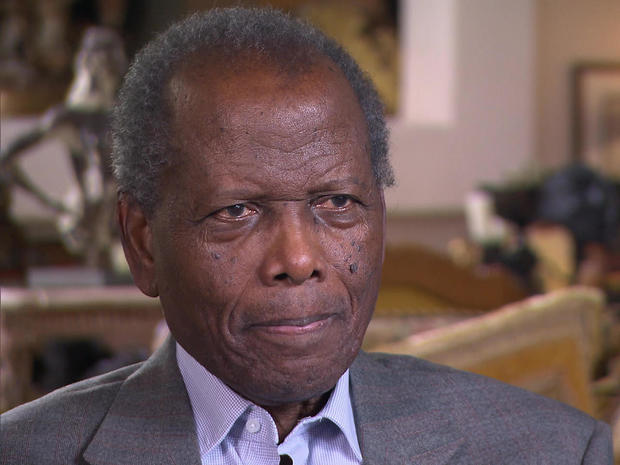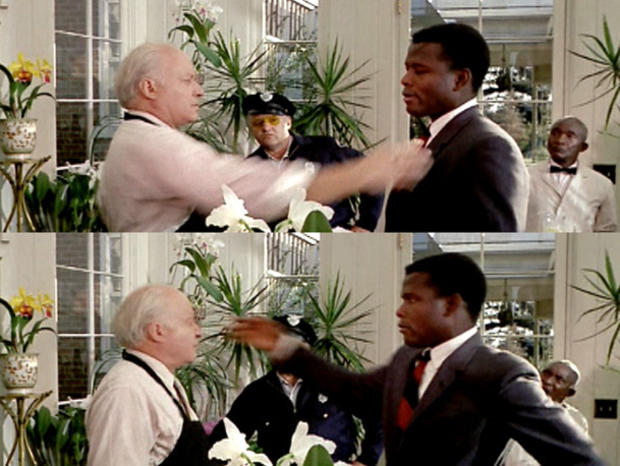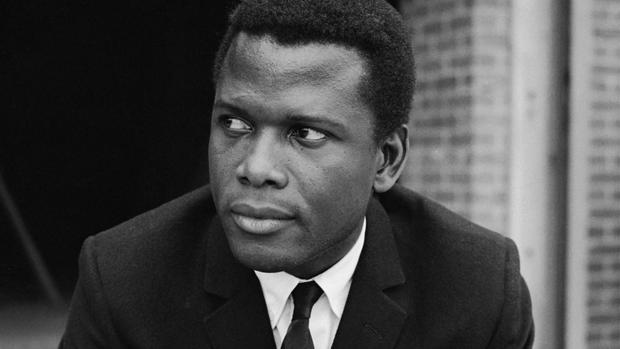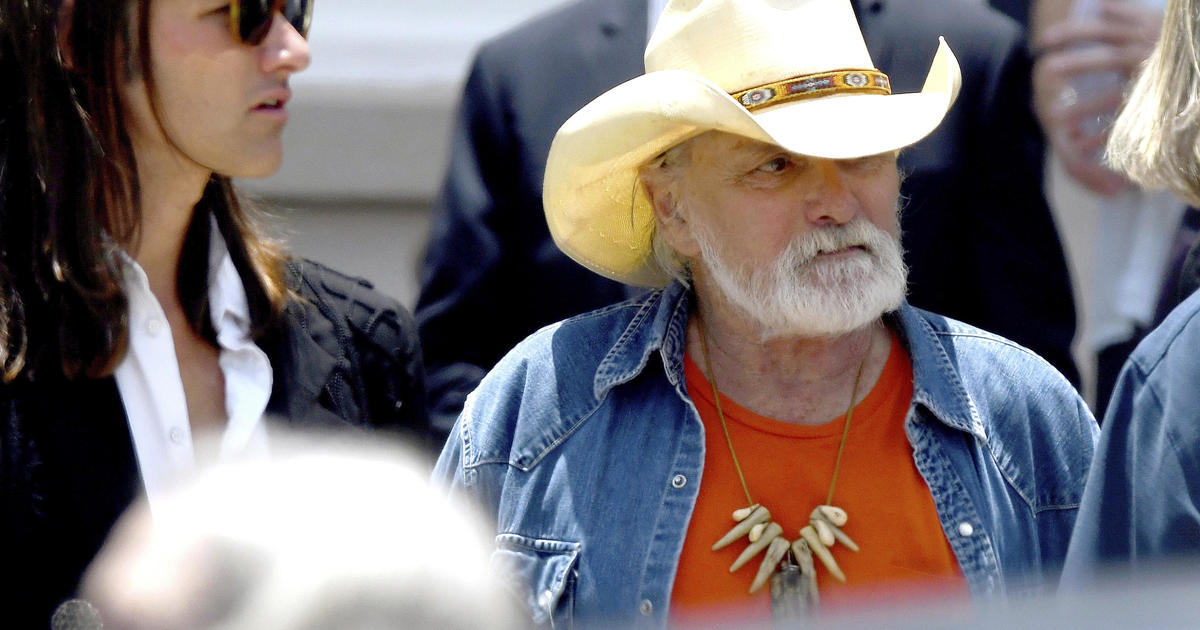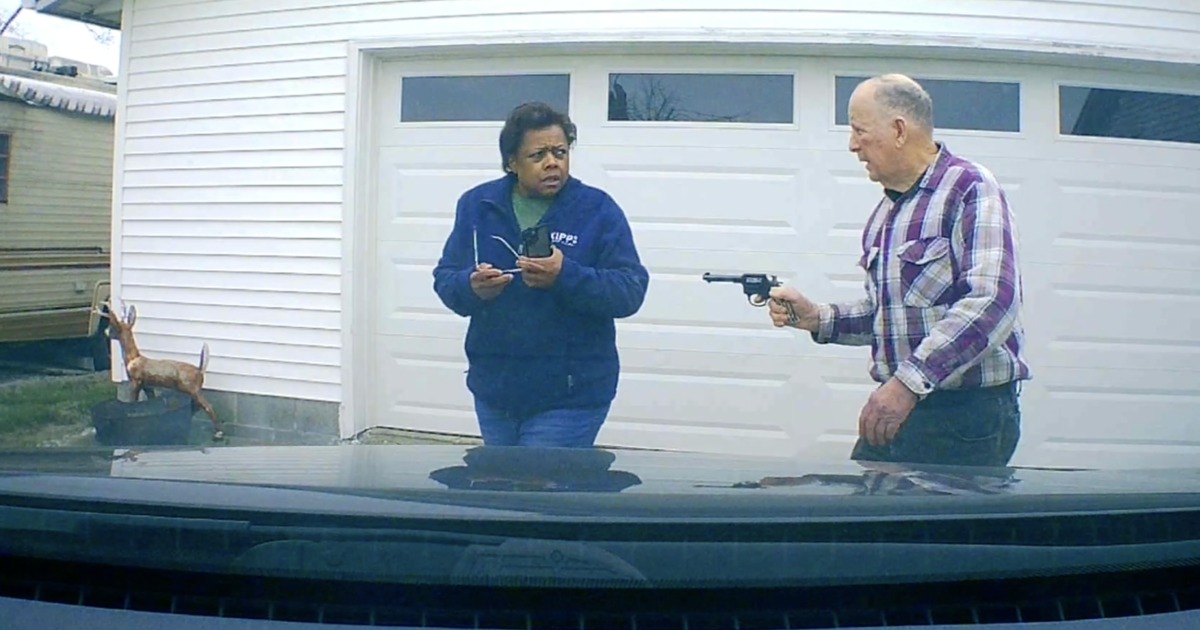From 2013: The Sidney Poitier interview
He was a legend. He was a pioneer. Sidney Poitier, who died this week at age 94, was a ground-breaking performer … truly in a class all his own. In 2013, "Sunday Morning" asked Lesley Stahl to talk with the Oscar-winning actor. We could think of no better remembrance than their conversation:
Sidney Poitier's life has been a series of "firsts." In 1959, he was the first Black man nominated for an Oscar as Best Actor for his role of an escaped convict alongside Tony Curtis in "The Defiant Ones." He was the first Black man to kiss a White woman in a movie, 1965's "A Patch of Blue." And when he won the best actor Oscar in 1964, he was not only the first Black actor to do so, he remained the only one until 2002.
After starring in more than 50 movies, Poitier said his career choices were less about being "first" and more about the image of his characters.
He would not, he told CBS News correspondent Lesley Stahl, play someone who was immoral or cruel. "If you go through my career, you'll find that I didn't. I didn't ever."
His typical character was dignified, proud and ethical. Take Virgil Tibbs, a Philadelphia homicide detective who reluctantly helps a small-town police chief in Mississippi (played by Rod Steiger) solve a murder, in 1967's "In the Heat of the Night."
But before signing on to play the role, Poitier asked the movie studio for a major script change to one scene in which his character is slapped: "I said, 'If he slaps me, I'm going to slap him back. You will put on paper that the studio agrees that the film will be shown nowhere in the world, with me standing there taking the slap.'"
"God, you had this written into the contract?" Stahl said.
"That's right," he replied.
"And of course, it is one of those great, great moments in all of film, all of film, when you slap him back."
"Yes, I knew that I would have been insulting every Black person in the world [if I hadn't]," Poitier said.
The youngest of seven children, Sidney Poitier was born three months premature while his Bahamian parents were in Miami to sell tomatoes. Uncertain whether he would survive, his dad purchased a tiny casket, while his mother consulted a palm reader ...
"The lady took her hand and started speaking to my mother, and she said: 'Don't worry about your son. He will survive,'" Poitier recalled. "'He will walk with kings.'"
Poitier lived in the Bahamas until the age of 15, when his parents – afraid their son was on a path to delinquency – sent him back to Miami to live with his older brother. But at 16, Poitier left for New York, where he tried his hand at acting, even though he'd had only two years of schooling.
"You couldn't read, you had a very thick Bahamian accent, and you decide to try and become an actor? Why did you go that route? It kind of makes no sense," said Stahl.
"I had no way of knowing that there is a madness to what I'm trying to do," he said.
After a disastrous audition with the American Negro Theater, where Poitier could barely read the script, an act of kindness at his job as a dishwasher changed his life.
"One of the waiters, a Jewish guy, elderly man. I had a newspaper, and he walked over to me, and he looked at me and he said, 'What's new in the paper?' And I looked up at this man and I said to him, 'I can't tell you what's in the paper, because I can't read very well.' He said, 'Let me ask you something, would you like me to read with you?' I said to him, 'Yes, if you like.'
"Now let me tell you something: Every night … every night, the place is closed, everyone's gone, and he sat there with me, week after week after week. I learned a lot. A lot.
"And then, things began to happen."
Like landing an acting apprenticeship with the very same theater company that had laughed him out of his audition.
There, Poitier learned alongside actors like Ruby Dee, Ossie Davis and Harry Belafonte.
And then in 1950, he was cast in his first starring role in a movie "No Way Out," as a doctor facing overt racism from a prisoner played by Richard Widmark.
From the beginning of his career, Poitier insisted that he portray men who were upright, well-educated, and often stronger of character than the White people around him.
"I did not go into the film business to be symbolized as someone else's vision of me," Poitier said. "If the screen does not make room for me in the structure of their screenplay, I'd step back. I couldn't do it. I just couldn't do it."
By 1967, Poitier was among the Top 10 Hollywood moneymakers, and a Top 10 leading man. In that one year alone, he starred in "To Sir, With Love"; the Oscar-winning "In the Heat of the Night"; and "Guess Who's Coming to Dinner," with Spencer Tracy and Katharine Hepburn.
But that year he began to face criticism from some in the African American community, who labeled him an "Uncle Tom" for the "purity" of his roles.
"And it didn't hurt you?" asked Stahl.
"Hurt me for what?" he replied. "I just simply say, 'I live by a certain code.' I have to have a certain amount of decency in my behavioral pattern. I have to have that."
In the 1970s, Poitier turned to directing. And surprisingly, the actor who so often personified elegance, grace and earnestness, directed comedies with slapstick, including "Uptown Saturday Night" and "Stir Crazy."
In the 1980s, he turned to writing books, producing three autobiographies. And when Stahl met with Poitier, the then-86-year-old had just written a novel, "Montaro Caine."
"I was not intending to make an impression," he explained. "I was finding release for myself within myself. I was looking for who I am at this point in my life."
"Did you find out?" Stahl asked.
"Somewhat, yes."
"Who are you?"
"I'm a good person," Poitier smiled.
This story was originally broadcast on May 12, 2013.
For more info:
- "The Measure of a Man: A Spiritual Autobiography" by Sidney Poitier (HarperCollins), in Trade Paperback, Large Print Trade Paperback, eBook and Audio formats, available via Amazon and Indiebound
Story produced by Kay Lim. Editor: Remington Korper.
